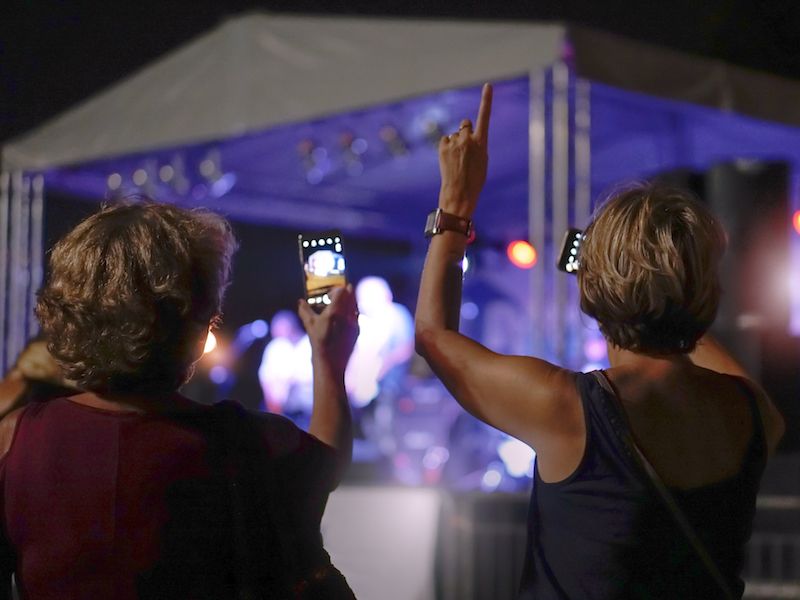
We’ve been looking forward to summer fun all year: trips to the beach, relaxing by the swimming pool, and damaged hearing? That’s correct, summer holds a lot of hidden hazards to your hearing, either from loud sounds or the environmental scenarios you may find yourself in. Any noises above 80 decibels could result in harm to your ears, while lasting hearing loss can take hold in pools or other bodies of water. To keep your ears safe and sound this summer, you need to be mindful of your surroundings and take precautions. Keep reading to discover the summer’s six hidden threats to your ears.
Wear Hearing Protection at Concerts
Summer is concert season, but even if you’re in a venue, you still should protect your ears. 90 decibels is inside the danger zone for hearing damage and concerts reach this volume even when you’re at outdoor venues. So regardless of whether you’re going to outside or inside shows, it’s a smart plan to use earplugs. You can still hear the tunes with earplugs in it’s just dampened a little. If you’re going to a performance with young children, consider getting them a heavy duty set of earmuffs because kids have more vulnerable hearing than adults.
Fireworks Are More Than Just Loud
Honestly, there are a lot of reasons to avoid fireworks in the summer. It’s not only the 4th of July shows which are pro that can damage your hearing, we mean the backyard fireworks which every summer cause many of accidents. Backyard fireworks achieve volume levels of over 155 which can injure your ears on top of causing hand problems, loss of sight and backyard fires. This year, on the 4th of July, appreciate the show from a little further away and leave the fireworks to the professionals.
Mowers Can Cause Loss of Hearing
If you’re serious about your lawn, it’s likely that you’re out there each week on your mower, using your edger, and trimming your bushes. But have you ever noted how off your ears feel after you finish, how everything sounds muffled or your ears are ringing? That’s because the lawn tools, which are constantly loud, have a slow and steady impact on your hearing. You’ve probably noticed landscapers using some type of hearing protection, next time you do yard work with loud power equipment, you need to take a hint from them and use earplugs or earmuffs.
How to Safeguard Your Ears at Pools And Beaches
Huge numbers of people suffer from swimmer’s ear each summer, which occurs when bacteria-laden water gets trapped in your ear canal. The bacteria then infects the ear, leading to swelling and painful earaches. These bacteria are usually found in lakes and rivers but sometimes also live in hot tubs and pools if the water isn’t properly treated. As long as you have your ears treated by a hearing specialist you should be fine, and no permanent hearing loss will happen. To be safe, when your swimming in your pool, wear specialized swimmers earplugs and keep the chemical balance correct to lessen the possibility of getting swimmers ear.
Boats and Other Water Sports
Summer is a taste of freedom for those individuals who enjoy being in a boat on the water, smelling the salt air of the ocean or the fresh breeze from the lake. But, boat and jet ski engines are usually noisy,we’re talking over 100 decibels. Sustained exposure to that much noise for a period of about 15 minutes can cause irreversible hearing impairment. In this circumstance also, putting on a set of disposable foam earplugs is a smart idea.
Your Ears Can be Hurt by Car Races
It doesn’t matter what kind of auto racing you love, stock cars, midgets, motorcycles, drag racing, Formula 1. All of them can present a huge problem for your hearing if you go to many races during the summer season. It’s estimated that volume levels can exceed 120 decibels at certain races, which is absolutely in the danger zone for hearing injury. Earplugs are your best bet at these races, whereas your children should probably wear the earmuffs we mentioned earlier. Otherwise, you may not get to enjoy the sound of those engines as you get older.
